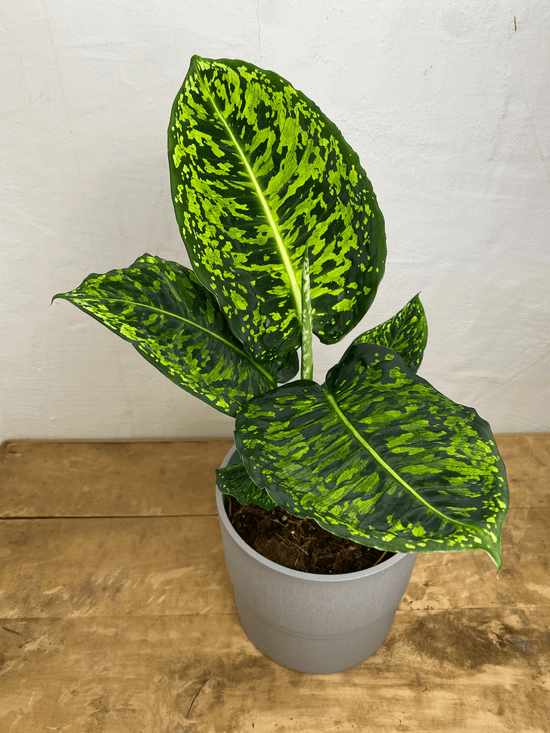13 products
-
Ficus Shivereana Moonshine
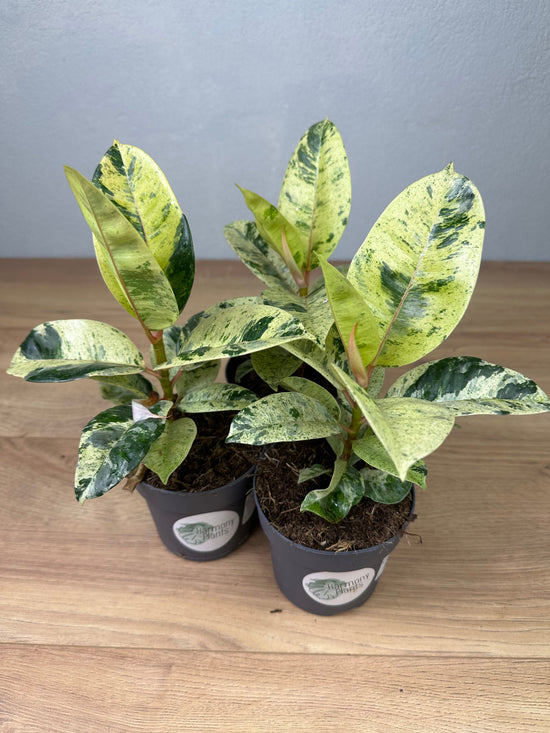 Vendor:Harmony PlantsFicus Shivereana Moonshine
Vendor:Harmony PlantsFicus Shivereana Moonshine- Regular price
-
From
€9,99 - Regular price
-
€19,99 - Sale price
-
From
€9,99
-
Begonia Maculata Pink Variegata
 Vendor:Harmony PlantsBegonia Maculata Pink Variegata
Vendor:Harmony PlantsBegonia Maculata Pink Variegata- Regular price
-
€85,00 €175,00 - Regular price
-
- Sale price
-
€85,00 €175,00
-
Begonia Maculata Pink Variegata (Low Variegata)
 Vendor:Harmony PlantsBegonia Maculata Pink Variegata (Low Variegata)
Vendor:Harmony PlantsBegonia Maculata Pink Variegata (Low Variegata)- Regular price
-
€49,00 - Regular price
-
- Sale price
-
€49,00
-
Musa Nono (Pink Variegata)
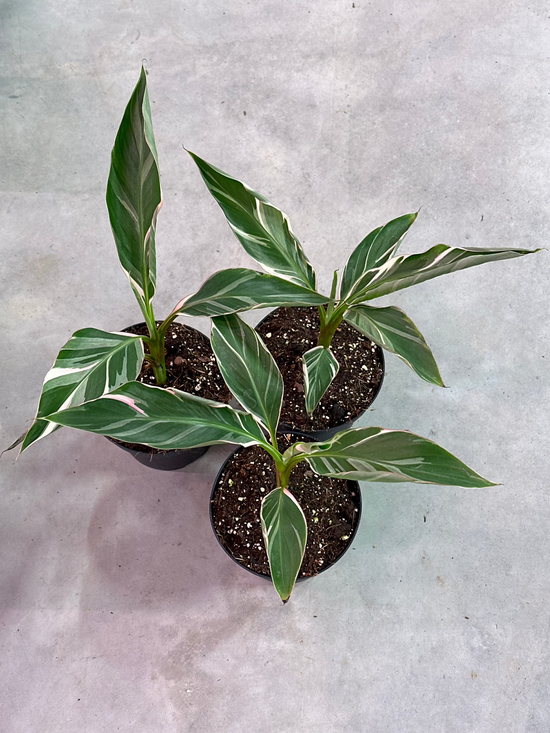 Vendor:Harmony PlantsMusa Nono (Pink Variegata)
Vendor:Harmony PlantsMusa Nono (Pink Variegata)- Regular price
-
€15,00 €30,00 - Regular price
-
€89,00 - Sale price
-
€15,00 €30,00
-
Scindapsus Mayari Variegata (Fresh Cutting)
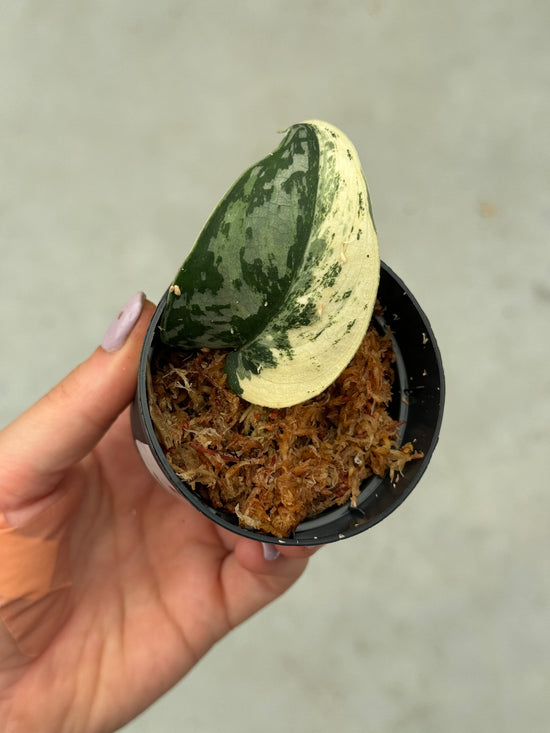 Vendor:Harmony PlantsScindapsus Mayari Variegata (Fresh Cutting)
Vendor:Harmony PlantsScindapsus Mayari Variegata (Fresh Cutting)- Regular price
-
€10,00 - Regular price
-
€79,00 - Sale price
-
€10,00
-
Begonia Snowcap Pink Variegata
 Vendor:Harmony PlantsBegonia Snowcap Pink Variegata
Vendor:Harmony PlantsBegonia Snowcap Pink Variegata- Regular price
-
€29,99 - Regular price
-
€69,99 - Sale price
-
€29,99
-
Rhaphidophora Tetrasperma Variegated
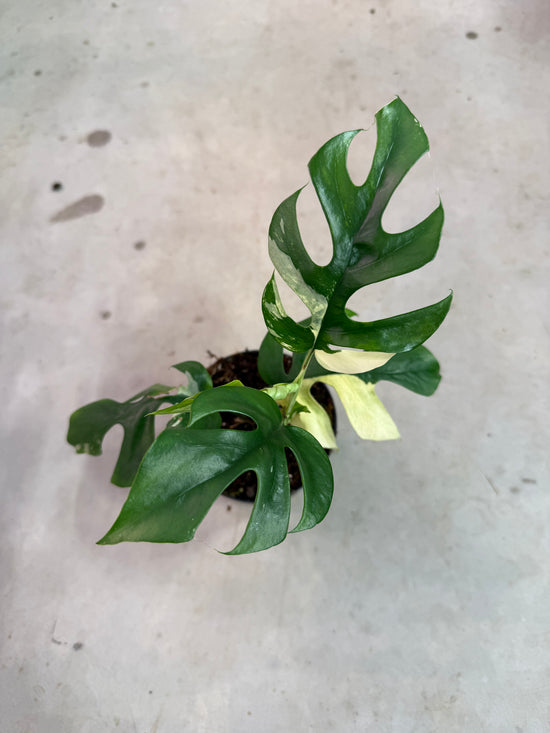 Vendor:Harmony PlantsRhaphidophora Tetrasperma Variegated
Vendor:Harmony PlantsRhaphidophora Tetrasperma Variegated- Regular price
-
€19,00 €49,00 - Regular price
-
€129,00 - Sale price
-
€19,00 €49,00
-
Maranta Lemon Lime
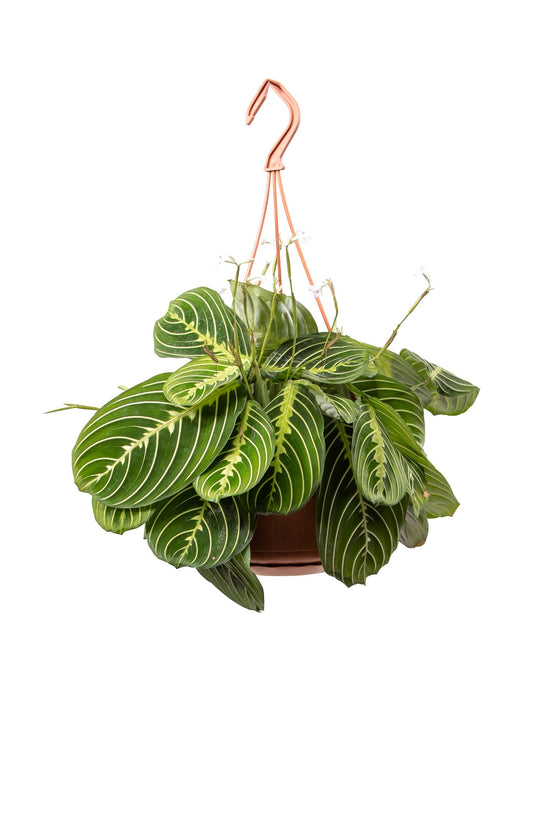 Vendor:Harmony PlantsMaranta Lemon Lime
Vendor:Harmony PlantsMaranta Lemon Lime- Regular price
-
€24,99 - Regular price
-
€39,00 - Sale price
-
€24,99
-
Scindapsus Pictus Jade Satin Variegata
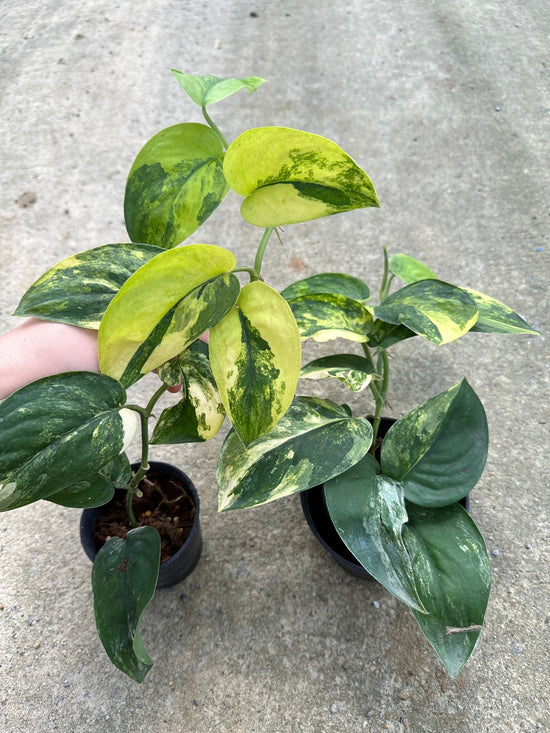 Vendor:Harmony PlantsScindapsus Pictus Jade Satin Variegata
Vendor:Harmony PlantsScindapsus Pictus Jade Satin Variegata- Regular price
-
€89,00 - Regular price
-
€149,00 - Sale price
-
€89,00
Exotic houseplants: Tropical greenery for your home
Discover our selection of unique houseplant varieties for your home. In addition to popular varieties from our shop, such as Monsteras , Alocasias , and Syngoniums, we also offer other exotic houseplants in this category. Be inspired and find your new green companion at Harmony Plants, bringing not only charm but also a vibrant freshness to your living spaces.
Advantages of exotic houseplants in the living room
With their distinctive leaf shapes, vibrant colors, and unusual growth habits, exotic houseplants lend any room a unique ambiance and create a special atmosphere. But exotic houseplants aren't just eye-catching—they offer other benefits.
Improved indoor climate
Many exotic plants actively contribute to air purification. They filter pollutants from indoor air, increase humidity, and can thus contribute to a healthier living environment – especially in the winter months, when dry, heated air significantly impacts air quality.
Houseplants as home accessories
With their striking appearance and often unusual coloring, exotic houseplants quickly become the decorative highlight of any room. Whether as a solitary plant in a large pot or combined with other plants in an urban jungle, they create stylish accents and bring a touch of naturalness to any home.
Natural spatial separation and structure
Large houseplants, in particular, are excellent natural room dividers. They help to better structure open-plan living spaces without the need for walls or additional furniture. Rooms with houseplants not only appear tidier but also more comfortable – ideal for more clearly separating different areas, such as work and leisure.
Versatile combination with any living style
Whether modern, minimalist, rustic, or boho – exotic houseplants blend seamlessly into virtually any interior design style. Their variety of shapes and colors makes them versatile design elements, whether discreetly placed in the background or as a deliberately placed eye-catcher. This makes it easy to bring your personal interior design ideas to life.
Year-round green
While many garden or flowering plants lose their leaves in the fall or only display their blossoms in spring and summer, tropical houseplants retain their full foliage year-round. Especially in spring and summer, many exotic houseplants show what they're capable of: With proper care, they grow vigorously, form new leaves, and visibly develop. This not only brings visual joy but also creates a sense of vitality and connection to nature in everyday life.
Care instructions for exotic houseplants
Some tropical houseplants are easy to care for and ideal for beginners, while others require a bit more care. With a little attention and the right conditions, however, they can be easily integrated into everyday life.
Light, humidity and temperature
Many tropical plants originate from regions with bright, filtered light, such as under the canopy of a rainforest. Therefore, a bright location away from direct midday sun is usually ideal. East- or west-facing windows are well suited. Too much direct sun can burn the delicate leaves of houseplants, while too little light inhibits growth. Humidity also plays an important role for many houseplant species. In dry, heated air, they benefit from regular misting or the use of a humidifier. Alternatively, a bowl of water on the windowsill or a damp cloth on the radiator can help. As far as temperature goes, exotic houseplants usually thrive between 18 and 25°C. Cold drafts or drastic temperature fluctuations should be avoided if possible.
Watering, fertilizing and repotting
Tropical houseplants generally prefer evenly moist soil, but without waterlogging. The pot should have good drainage, and excess water should be removed from the planter. The top layer of soil can dry out slightly between waterings. During the active growth phase, usually between March and September, fertilize your houseplants with a suitable liquid fertilizer about every two to four weeks. In winter, it is often sufficient to fertilize only sparingly or not at all. Repotting is recommended every one to two years, depending on how quickly your houseplant grows. If the plant shows roots at the bottom of the pot or the substrate appears very compacted, a slightly larger pot with fresh, loose soil is recommended.
Diseases and pests on exotic houseplants
While many tropical houseplants are robust with proper care, they can become susceptible to pests and diseases under unfavorable conditions—such as excessively dry air from heating. Regular inspection and care are crucial to keeping your houseplants healthy.
- Leaf care: Dust on the leaves can hinder photosynthesis. Wipe the leaves regularly with a soft, damp cloth.
- Remove dead plant parts: Cut back wilted leaves or dry shoots promptly. This prevents fungi or other pathogens from spreading on your houseplant.
- Regular inspection: Check your exotic beauties regularly for pests such as spider mites, scale insects, or fungus gnats. Don't forget the undersides of the leaves and the area around the soil.
- Act early: If you notice an infestation, it is important to act quickly to save your plant – either with home remedies or suitable pesticides.
Exotic houseplants from Harmony Plants
Looking to add a special green accent to your home? In our category for other houseplants, you'll find varieties that are anything but ordinary—from rare leaf shapes to colorful highlights. Ideal for those seeking something extraordinary. Our plants are carefully selected, securely packaged, and delivered directly to your home. This way, you can conveniently get your new favorite plant—without any hassle or stress. Whether you're looking for an easy-care starter plant or a tropical rarity, at Harmony Plants, you'll find the perfect exotic houseplant for your style and living space.
Exotic Houseplants FAQ
Which houseplants are suitable for beginners?
Not every exotic houseplant requires the same amount of care. Robust plant varieties like the Monstera Deliciosa or uncomplicated Philodendrons, which cope well with a variety of light conditions and require little maintenance, are particularly suitable for beginners. Some Syngoniums are also easy to care for and are forgiving of minor care mistakes. Those with some experience can venture into more demanding plants like Alocasia or Anthurium – these usually require higher humidity and are more sensitive to changes in location or watering errors.
How can I increase the humidity for my tropical houseplants?
Many tropical houseplants originate from regions with high humidity and thrive best at home when the air isn't too dry. To improve the indoor climate for your houseplants, you can combine several measures: Group your plants together to create a small microclimate that retains humidity better. Additionally, shallow bowls of water placed nearby or regularly misting the leaves with low-lime water can help. Using a humidifier is particularly effective, especially for more sensitive species. Also, make sure the plants aren't placed directly next to radiators or in drafts, as this can dry out the leaves.
Do tropical houseplants need a lot of space to grow?
The space requirements of tropical houseplants vary depending on the species. Houseplants such as the dragon tree (Dracaena) and the money plant (Epipremnum aureum) are space-saving and fit well in smaller spaces. Larger plants such as the Monstera deliciosa or the Ficus lyrata require more space to develop optimally.
Which plants are in the “Other Houseplants” category?
In this category, you'll find exotic houseplants that aren't part of our main categories, but still impress with their own unique characteristics. These include less commonly cultivated tropical plants, unusual individual specimens, and plants with striking leaf shapes or impressive variegations. Many of these plants are less well-known, but that's precisely why they're particularly exciting for those looking for something unusual. If you're looking to add an unusual highlight to your collection, you've come to the right place.













